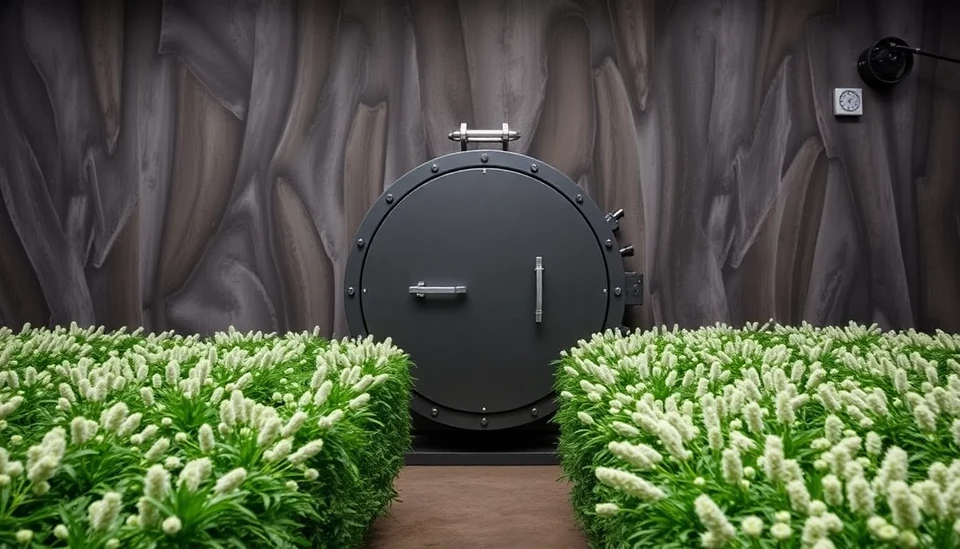
In a world increasingly shaken by climate change, geopolitical tensions, and global pandemics, the preservation of agricultural diversity has never been more critical. The Svalbard Global Seed Vault, often referred to as the "Doomsday Seed Vault," is positioning itself as a pivotal resource in the global effort to secure food for future generations. Located deep within a mountain on the Svalbard archipelago between mainland Norway and the North Pole, this facility offers a unique sanctuary for the seeds of thousands of plant species.
The vault, which opened in 2008, has recently gained attention due to its expanding role in a troubling global landscape characterized by severe weather events and supply chain disruptions. With the climate crisis threatening diverse agricultural yields, maintaining a robust seed bank has emerged as an essential strategy for overcoming future food crises. The vault holds backup seeds from gene banks around the world, providing a safety net that countries can tap into when faced with catastrophic crop failures.
Over the years, more than a million seed varieties have been deposited in the facility, including crops that are vital for food security, nutrition, and economic stability. This collection not only preserves the genetic diversity necessary for disease resilience and adaptability but also fosters the potential for agricultural innovation and the development of new crop varieties.
Recent reports highlight the alarming decrease in biodiversity as many farmers increasingly rely on a select few high-yield crop varieties. This trend not only threatens food security but also makes crops more vulnerable to pests and diseases. By backing up these genetic materials, the Seed Vault ensures that future generations have access to the crops needed to sustain them.
In the face of an escalating crisis in global food production caused by factors like war, climate change, and pandemics, the Seed Vault's role in safeguarding these vital resources is more significant than ever. In collaboration with various international agricultural institutions, developers, and scientists, the vault is actively promoting discussions around sustainable farming practices and the importance of genetic diversity in food systems.
Another pressing concern is the impact of human activity on agricultural landscapes. Urgent calls are being made for a concerted global effort to re-diversify crops and to invest in local farming systems that prioritize sustainability. Experts believe that small-scale farmers can play a crucial role in this effort, as they possess invaluable traditional knowledge and practices necessary for adapting to changing climatic conditions.
As nations continue to grapple with the multifaceted challenges of food production and distribution, the Svalbard Global Seed Vault stands as a beacon of hope. It embodies a global commitment to preparing for the uncertainties of the future, ensuring that we are not only protecting what we have but also securing a legacy for generations to come.
In conclusion, the preservation of agricultural biodiversity through initiatives like the Doomsday Seed Vault is critical to sustaining global food security in an age of uncertainty. As we advance further into the unpredictable terrain of climate and geopolitical upheavals, we must remain vigilant and proactive in these initiatives to cultivate a resilient future for food systems worldwide.
#SvalbardSeedVault #FoodSecurity #AgriculturalBiodiversity #ClimateChange #SustainableFarming #DoomsdaySeedVault #GlobalFoodCrisis
Author: Laura Mitchell




